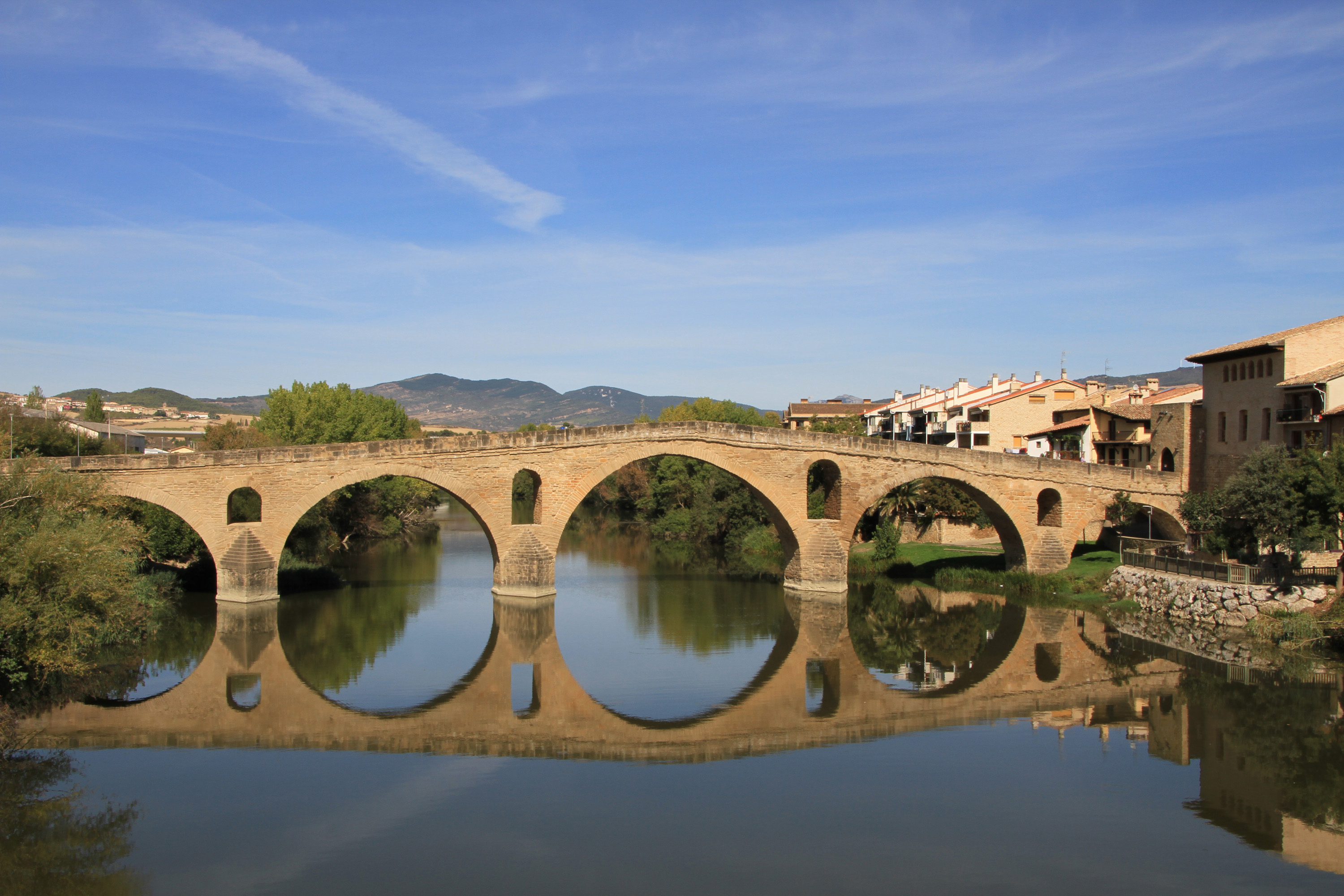
In Puente la Reina, final stop of the third stage, you can visit the Church of the Crucifijo (12th, 14th centuries), which was built by the members of the Order of the Temple.
You can also tour the Church of Santiago (12th century), located on the Mayor Street, which contains one of the finest multicolored sculptures representing the Apostle Santiago that can be found along the Santiago Route.
The fourth stage of the Santiago Route leaves behind this charming town through the Bridge of the Peregrinos, a medieval jewel dating back to the 11th century, and is headed for Mañeru, where walkers will find a famous Renaissance transept.
They will be able to visit the18th-century parish church of San Pedro and pray inside. The journey continues to Cirauqui, a typical medieval town which contains a beautiful Roman road and the Church of San Román (16th century), filled with keepsakes from former pilgrimages. Another ancient monument is the Temple of Santa Catalina, built in the 13th century.
The Santiago Route progresses to Lorca, where visitors will find a marvelous group of emblazoned houses and the Romanesque Church of El Salvador, built in the 12th century. Leaving behind this village, walkers arrive in Villatuerta, with its Romanesque parish church of the 12th century, the small Chapel of San Miguel (11th century) and its Romanesque bridge. The journey finally takes exhausted travellers to a resting place where they will spend their fourth night on the Santiago Route, Estella.
This noble village, founded in 1909 by the king of Navarra Sancho Ramírez, is the home to numerous precious gems.







